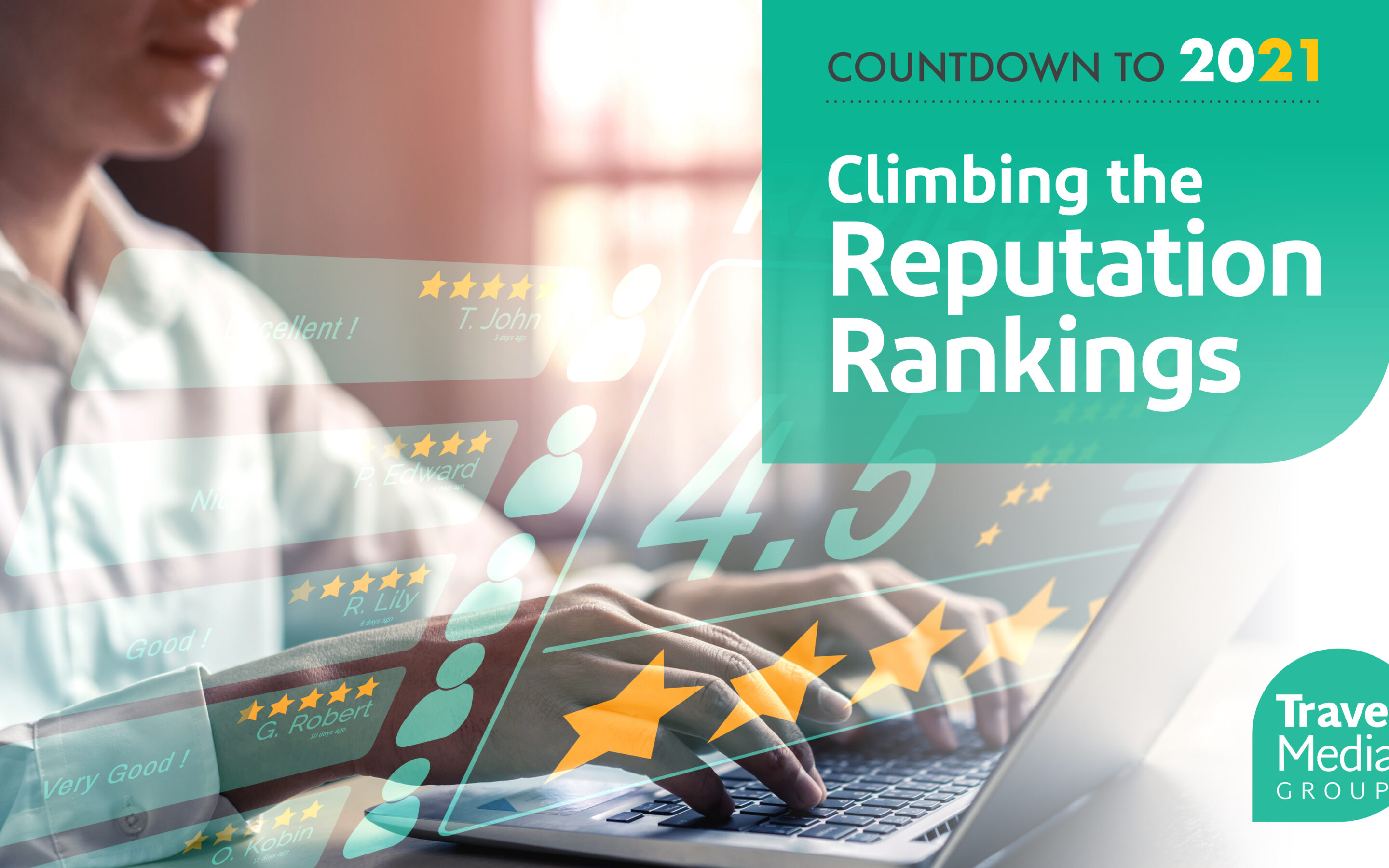Countdown to 2021: Climbing the Reputation Rankings [Webinar]

The countdown is on for a Happy New Year! For some, 2021 can’t come soon enough, as they look for a fresh start. For the hotel industry, 2021 represents a year of hope and recovery. Over the course of 2020, we have learned that hotels can accelerate their pace of recovery by having a strong positive reputation. Let’s explore some ways to increase your hotel’s reputation ranking and position yourself as the best option for guests looking to jump back into the travel world in 2021.
Reputation Rankings Recap
We will start with a little bit of a reputation ranking recap, by reviewing the 4 factors of TripAdvisor’s algorithm that determine where your property ranks in comparison to your local competitors:
- Quality – This is the average score guests give your hotel. The quality score can range from 1-5, with 5 being the best. The better the rating, the better your overall score, the higher you rank.
- Quantity – Some hotels tend to overlook this critical piece of their hotel’s ranking – for example, newer hotels with very few reviews, who are confused by their great rating, but low city rank in their market. The number of online reviews is important because it has to do with consumer confidence. The more reviews you receive, the higher your rank, and the more guests will trust your rank and score.
- Recency – This element looks at not how good or how many, but rather how recently new online reviews have been posted on your hotel’s profile. This factor is included to verify the accuracy of a hotel’s reputation. If no recent reviews are published, travelers may doubt the reliability of your existing reviews and score today.
- Consistency – Added in 2018, the goal of including consistency is to, quote TripAdvisor “more accurately reflect a business’s performance relative to others in its location over time, regardless of its size or the rate at which it collects reviews.” So the addition of consistency really levels the playing field to reward hotels that provide reliably good service.
So in a combination of these four factors, Tripadvisor ranks your hotel against local competitors in your market. So now let’s put these four reputation elements into context and illustrate why each one is instrumental in improving your hotel’s reputation ranking.
The Reputation Race

For this, let’s imagine each hotel in this market as a racehorse (pictured above), sprinting towards the coveted number one spot on TripAdvisor. The better rated your reviews are, the more reviews you receive, and the more frequently and consistently you generate those reviews, the farther your horse runs and climbs up the race standings.
- Yellow Horse – The youngest in the race is incredibly fast but lacks the stamina to continue its sprint towards the finish line. Think of this horse as a brand new hotel that is generating an incredibly high quality of reviews, but lacks the amount or quantity of reviews to catch up and pass its competition. If this hotel wants to climb the rankings, it needs to focus its attention on generating more of these reviews and on a more frequent, consistent basis.
- Green Horse – This older horse is not as fast as it once was, but has the experience and stamina to outpace its competitors. Think of this horse as an older hotel that might have had a great, solid reputation in years past, but recently the quality and rating of its reviews have begun to dwindle. However, it still relies on its historical reviews and long-standing reputation to bring in travelers. If this hotel wants to maintain its position and ultimately start to climb the rankings again, they will need to figure out a strategy to improve its guest experience at the hotel today to increase the rating of its reviews that it’s receiving.
- Blue Horse – This horse keeps a speedy, steady pace outperforming its local competitors and finishing first in the overall standings. This is an example of a hotel doing all the right things reputation-wise. Receiving a constant influx of positive feedback adding up over time. This is the ultimate goal and where we want to be.
How To Outpace Your Competition

So how do we determine where your hotel is in this race and what it will take for your property to climb the ranks? Well, in order to outperform the competition, we have to see just how your competition is performing. Hotels that partner with Travel Media Group’s reputation management solution get access to competitor reputation reporting. The report displays the average reputation data for your market, including the percentage of positive, neutral, and negative reviews hotels in your area are receiving. Think of this as the average pace of the race you’re running.
So as we look at your individual property’s reputation data, we can quickly determine if you are underperforming or outperforming the competition. For the hotel example in the report above, we see that it is outperforming the market average of positive reviews by 7%. This means it is running faster than the average hotel in the race and is more likely to jump other hotels in its market. However, it’s not just about positive reviews. This hotel is also receiving fewer negative reviews than the market average by 2%. For this reason, the hotel is less likely to get slowed down by negative feedback and jumped by other hotel competitors.
Hotels need a comprehensive reputation strategy in order to make significant gains in city rank on TripAdvisor in 2021, especially with the decline in review flow due to the pandemic. Properties that are serious about increasing their position in city rank need to know this competitor data and consistently monitor it moving forward.





0 Comments